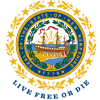Frequently Asked Questions
Frequently asked questions about Talking Books.
Who is eligible for this program?
Anyone whose low vision, blindness or disability makes reading regular printed material difficult. This may include legal blindness, visual impairment, physical disability causing an inability to turn pages or comfortably hold a book for extended periods of time, deaf-blindness, or reading disability. Examples of physical problems that may be eligible include arthritis of hands and wrists, cataracts not ready for surgery, dyslexia, macular degeneration, or stroke. Some problems may be permanent, others may be temporary. We are happy to provide service while it's needed and cancel when a person's health has improved to where reading is comfortable once more.
Who can certify people as eligible for this program?
A professional, such as a nurse, optometrist, teacher, librarian, doctor, or social worker. The list of professionals who can certify the eligibility of applicants with reading disabilities has been expanded to include reading specialists, educators, librarians, and school psychologists.
How long does it take for an individual to begin receiving service after submitting an application?
Established standards allow up to 2 weeks for processing of application and assignment of a player.
Does it cost anything to use this program?
No, there is no charge for materials provided on loan to individuals and facilities by the library. The players and books are property of The Library of Congress and must be returned when the patron is no longer using the service. Some external resources may charge a fee for materials provided on loan or sold by their businesses.
Can books or magazines be downloaded from the internet?
Yes, registered library patrons may download books and magazines from BARD. Please visit our BARD webpage for complete information regarding BARD.
Are magazines available through this program?
Yes, audio and braille magazines for children and adults are available on loan with no subscription fee.
Can people use the program if they are in residential care facilities or retirement homes?
Yes, the individual will receive their books and magazines sent directly to their place of residence. The facility may also be registered for library services as a deposit collection, with a player and several books they may use to demonstrate how this program works within the home.
What is NLS?
The National Library Service for the Blind and Print Disabled (NLS) is a free braille and talking book library service for people with temporary or permanent low vision, blindness, or a physical, perceptual, or reading disability that prevents them from using regular print materials. Through a national network of cooperating libraries, NLS circulates books and magazines in braille or audio formats, that are instantly downloadable to a personal device or delivered by mail free of charge.
Does this program offer music?
No, the library does not have audio music selections in its collection. The NLS Music Section provides braille and large-print musical scores, recorded instructional materials, and recorded materials about music and musicians.
Are textbooks available?
No, textbooks are not available. Please contact the school or low vision teacher for information about audio or braille textbooks.



